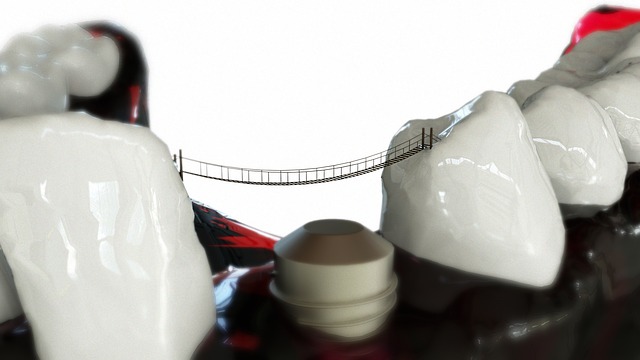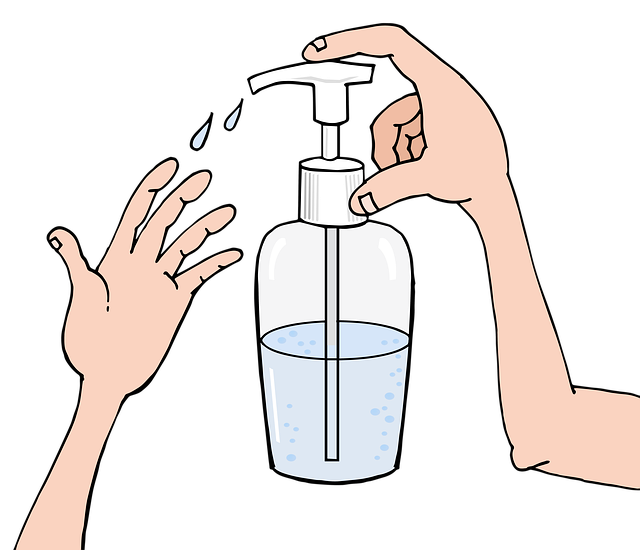Unmasking the Mystery: The Link Between Braces and Canker Sores
Whether you’ve had them once or have become all too familiar with them, we can all agree that canker sores are an undeniable annoyance. These small, painful ulcers that plague the inside of our mouths seem to have a knack for appearing at the most inconvenient times. But what if we told you that there may be a connection between these pesky sores and braces? Yes, that’s right! In this informative article, we will delve into the mystery of the relationship between braces and canker sores. Brace yourself for some enlightening insights and discover how a seemingly innocent orthodontic appliance could be contributing to the dilemma. So, grab a cup of tea, sit back, and let us unmask the perplexing connection between braces and canker sores, all with a friendly tone and a willingness to help.
1. Introduction: Understanding the Connection between Braces and Canker Sores
Braces and Canker Sores: What’s the Connection?
Dealing with canker sores can be a frustrating experience, especially when you have braces. While canker sores are not caused by braces directly, people wearing braces are more susceptible to developing these painful sores. Understanding the connection between braces and canker sores is essential for those going through orthodontic treatment. Here, we’ll delve into the reasons why canker sores may occur with braces, as well as provide some helpful tips to manage and prevent them.
Possible Causes:
- Tissue Irritation: The presence of braces can cause irritation to the soft tissues inside your mouth, including your gums, cheeks, and tongue. This irritation can create an environment where canker sores are more likely to form.
- Injury from Braces Components: Brackets, wires, or other orthodontic appliances can occasionally cause minor cuts or scratches in the mouth. These tiny injuries can then lead to the development of canker sores.
- Frequent Mouth Irritation: The adjustment period after getting braces often involves soreness and discomfort as your mouth adapts to the foreign objects. The constant discomfort can cause you to bite the inside of your cheek or lip inadvertently, resulting in canker sores.
Managing and Preventing Canker Sores:
- Keeping Good Oral Hygiene: Maintaining proper oral hygiene is crucial to prevent canker sores. Regular brushing, flossing, and using an antibacterial mouthwash can help eliminate bacteria and reduce the risk of infection, promoting faster healing.
- Alleviating Discomfort: Over-the-counter oral gels, creams, or rinses specifically designed to ease canker sore pain can provide temporary relief. Applying a small amount of the product to the affected area can help calm the pain and accelerate healing.
- Avoiding Certain Foods: Acidic, spicy, or rough-textured foods can further irritate your mouth, making canker sores worse. Try to avoid these foods, especially during the healing process, to prevent additional discomfort.

2. What are Canker Sores: A Brief Overview
Canker sores, also known as aphthous ulcers, are small, shallow, and painful sores that can develop inside your mouth. They typically appear as round or oval-shaped lesions with a white or yellowish center and a red border. Although canker sores can be uncomfortable, they are not contagious and often heal on their own within one to two weeks.
These sores can occur at any age but are more common in teenagers and young adults. While the exact cause of canker sores is not known, certain factors can increase the likelihood of developing them. These include:
– Stress: Emotional or physical stress can trigger the onset of canker sores.
– Poor oral hygiene: Not maintaining good oral hygiene can lead to the development of canker sores.
– Food sensitivities: Some individuals may have a reaction to certain foods, such as acidic fruits, that can result in canker sores.
– Hormonal changes: Hormonal fluctuations, particularly during menstruation, can contribute to the occurrence of canker sores.
If you experience canker sores frequently, it may be helpful to keep a record of potential triggers to identify patterns and avoid them. While canker sores can be bothersome, they typically don’t require medical treatment. However, if the sores are severe, last for more than two weeks, or are accompanied by other symptoms, it’s advisable to consult a healthcare professional for further evaluation.
3. The Role of Braces in Canker Sore Development: Unmasking the Mystery
The development of canker sores can sometimes be a mystery, but recent studies have shed light on a surprising factor: braces. Yes, those metal or ceramic brackets that people wear to straighten their teeth can actually play a role in the formation of these bothersome sores.
But why? It all comes down to the structure of braces and their impact on oral hygiene. Braces can create small nooks and crannies where food particles and bacteria can get trapped, making it harder to keep the mouth clean. This buildup of bacteria can irritate the gums and the soft tissues inside the mouth, leading to the development of canker sores.
- Increased friction: Braces can create additional friction between the brackets, wires, and the cheeks, lips, and tongue. This constant rubbing can cause irritation and increase the likelihood of canker sores.
- Reduced saliva flow: The presence of braces can sometimes impede the natural flow of saliva in the mouth. Saliva plays a crucial role in maintaining a healthy oral environment, and a decrease in its production can contribute to canker sore formation.
- Accidental trauma: The placement of braces can make accidental biting or scraping of the soft tissues inside the mouth more likely. These minor injuries can trigger canker sore development.
While braces can potentially contribute to the development of canker sores, it’s important to remember that not everyone who wears braces will experience this issue. Proper oral hygiene, including regular brushing and flossing, can go a long way in preventing the buildup of bacteria and decreasing the chances of canker sore formation. Additionally, using orthodontic wax or other protective measures recommended by your orthodontist can help minimize friction and reduce the risk of irritation.

4. How Orthodontic Appliances can Trigger Canker Sores
When it comes to orthodontic appliances like braces or retainers, canker sores can sometimes be an unfortunate side effect for a few individuals. While not everyone experiences this, it’s important to understand how these appliances can trigger canker sores and what you can do to manage them.
Friction: One of the primary reasons orthodontic appliances can lead to canker sores is due to friction. Braces or retainers can rub against the inside of your cheeks, lips, or tongue, causing irritation that can potentially result in the formation of canker sores. It’s essential to ensure that your appliances are properly fitted and adjusted by your orthodontist to minimize this friction.
Allergies or Sensitivities: Some individuals may experience an allergic reaction or sensitivity to the materials used in orthodontic appliances. This can lead to inflammation and the development of canker sores. If you suspect an allergic reaction, it’s crucial to consult with your orthodontist to explore alternative options or materials. They can help find a solution that is compatible with your body to reduce the risk of canker sores.

5. Identifying the Warning Signs: How to Differentiate Canker Sores from Other Oral Lesions
When it comes to oral lesions, it’s important to be able to identify the warning signs of a canker sore to differentiate it from other types. Canker sores, also known as aphthous ulcers, are small, painful ulcers that appear inside the mouth. Here are some key factors to help you distinguish canker sores from other oral lesions:
- Location: Canker sores typically develop on the soft tissues inside the mouth, such as the inner cheeks, gums, tongue, and lips. They rarely occur on the hard palate or the back of the throat.
- Appearance: These sores are usually round or oval-shaped with a white or yellowish center and a red border. They are shallow and do not contain pus.
- Pain level: Canker sores are known for causing discomfort and pain, especially when eating, drinking, or talking. However, they are generally not severe and tend to heal within one to two weeks.
Although canker sores share some similarities with other oral lesions, it’s the combination of these distinguishing features that sets them apart. If you notice any of these symptoms, it’s likely that you’re dealing with a canker sore. However, it’s always a good idea to consult a healthcare professional for a proper diagnosis and appropriate treatment options. Remember, maintaining good oral hygiene and avoiding triggering factors like stress, acidic foods, or trauma can help prevent canker sores from recurring. Now that you can identify these lesions, you’ll be better equipped to manage and treat them if they ever appear.

6. Tips for Preventing Canker Sores during Braces Treatment
During braces treatment, it’s common to experience canker sores, but with a few simple tips, you can prevent them and enjoy a more comfortable orthodontic journey. Here are some helpful recommendations:
- Maintain excellent oral hygiene: Brush your teeth at least twice a day with a soft-bristled toothbrush and fluoride toothpaste. Remember to utilize interdental brushes or floss threaders to clean between the braces and along the gumline.
- Avoid trigger foods: Certain foods can irritate your mouth and lead to canker sores. Stay away from crunchy, hard, or spicy foods. Additionally, try to minimize your consumption of acidic or citrus fruits.
- Use orthodontic wax: Apply some orthodontic wax over any protruding brackets or wires that may rub against your cheeks or lips, causing discomfort and potential canker sore development.
Remember, prevention is key! By incorporating these tips into your daily routine, you can significantly reduce the likelihood of developing canker sores during your braces treatment. If you experience persistent canker sores or any other concerns, don’t hesitate to consult your orthodontist for personalized advice and solutions.

7. Effective Home Remedies for Soothing and Healing Canker Sores
If you’ve ever experienced the discomfort of a canker sore, you know just how bothersome they can be. Luckily, there are several effective remedies you can try at home to soothe and heal these pesky sores. Here are some tried and true methods to help you find relief:
- Rinsing with saltwater: Saltwater can help reduce inflammation and promote healing. Mix a teaspoon of salt in a cup of warm water and swish it around in your mouth for about 30 seconds before spitting it out. Repeat this a few times a day for maximum benefits.
- Applying aloe vera gel: The soothing properties of aloe vera can provide relief from canker sore pain. Apply a small amount of aloe vera gel directly to the sore a few times daily. You can find aloe vera gel at most drugstores or even extract it directly from an aloe vera plant if you have one.
- Using a baking soda paste: Baking soda can help neutralize acidity and reduce inflammation. Mix one teaspoon of baking soda with a small amount of water to create a paste, then apply it directly to the canker sore. Leave it on for a few minutes before rinsing your mouth with water. Repeat this process a few times daily until the sore heals.
Remember to practice good oral hygiene by regularly brushing and flossing your teeth, as well as avoiding spicy or acidic foods that may irritate the canker sore. If your canker sore persists or gets worse, it’s best to consult with a healthcare professional for further evaluation and treatment options.
8. Over-the-Counter Products for Canker Sore Relief: A Helpful Guide
Canker sores can be extremely uncomfortable and may cause difficulty in speaking and eating. Thankfully, there are various over-the-counter (OTC) products available in the market that can provide relief from the pain and help speed up the healing process. Here is a helpful guide to some of these products:
Gel and Ointments:
- Anbesol Regular Strength Gel: This gel contains benzocaine, a topical anesthetic, which can help numb the pain caused by canker sores.
- Orajel Mouth Sore Gel: This gel contains benzocaine and menthol, providing dual-action relief by numbing the affected area and soothing inflammation.
Rinses and Sprays:
- Colgate Peroxyl Mouth Sore Rinse: This rinse contains hydrogen peroxide, which can help clean and promote healing of canker sores. It also provides a refreshing and minty sensation.
- Gly-Oxide Liquid Antiseptic Oral Cleanser: This liquid contains carbamide peroxide, which can help cleanse and reduce bacteria around the sore, promoting faster healing.
When using these OTC products, it is important to carefully read and follow the instructions provided. If the pain or duration of your canker sore persists or worsens, it is recommended to consult a healthcare professional for further evaluation and treatment options.
9. Seeking Professional Intervention: When to Consult your Orthodontist or Dentist
When it comes to your orthodontic or dental treatment, it’s important to know when it’s time to seek professional intervention from your orthodontist or dentist. Regular check-ups and communication with your dental professionals will help ensure that you receive the best care possible. Here are some situations where it’s crucial to consult your orthodontist or dentist:
1. Pain or discomfort: If you experience persistent pain, discomfort, or soreness in your teeth, jaws, or gums, it’s essential to schedule an appointment with your orthodontist or dentist. They will be able to diagnose the issue and provide appropriate treatment to alleviate your pain.
2. Loose or broken appliances: If any of your orthodontic appliances such as braces, wires, or retainers become loose, broken, or damaged, don’t hesitate to reach out to your orthodontist. They will guide you on whether immediate action is necessary, such as coming in for a repair or adjustments, to keep your treatment on track.
3. Difficulty eating or speaking: If you’re having difficulty biting, chewing, or speaking properly, it could be a sign of an issue with your orthodontic treatment. Contact your orthodontist or dentist, who will evaluate your situation and make the necessary adjustments to ensure your treatment progresses smoothly.
Your orthodontist or dentist is always there to support you through your dental journey. By staying vigilant and seeking professional intervention when needed, you’ll be one step closer to achieving a healthy and confident smile!
10. Conclusion: Embracing a Comfortable Braces Journey, Minus the Canker Sore Woes!
Embarking on a braces journey can be an exciting and life-changing experience. While the road may have its challenges, the end result is a beautifully aligned smile that you will be proud of. However, one of the most common discomforts that braces wearers face is the dreaded canker sores. Fortunately, with a few simple tips and tricks, you can minimize the canker sore woes and make your braces journey more comfortable and enjoyable.
First and foremost, maintaining good oral hygiene is key to preventing canker sores. Be sure to brush your teeth gently but thoroughly after each meal using a soft-bristled toothbrush and fluoride toothpaste. Flossing is equally important in removing any food particles that may get trapped in between your teeth and braces. Remember to use a floss threader or orthodontic floss to reach those tricky spots!
- Avoid consuming foods that are known to trigger canker sores, such as citrus fruits, spicy foods, and crunchy snacks.
- Use a mouth rinse or saltwater solution to soothe any discomfort or irritation caused by canker sores. Simply swish the rinse in your mouth for about 30 seconds, then spit it out. This will help promote healing and relieve pain.
- If a canker sore does develop, avoid picking at it or touching it with your tongue. Applying a dental wax or orthodontic silicone cover to the braces can provide a protective barrier and reduce friction.
By following these tips and maintaining regular check-ups with your orthodontist, you can ensure a more comfortable braces journey, free from canker sore woes. Remember, it’s just a temporary challenge on the path to a beautiful smile that will last a lifetime. Embrace the journey and soon enough, you’ll be flashing that confident, perfectly aligned grin to the world!
Frequently Asked Questions
Q: What are canker sores?
A: Canker sores, also known as aphthous ulcers, are painful sores that appear inside the mouth, specifically on the lips, cheeks, gums, or tongue. They are not contagious and often take about 1-2 weeks to heal.
Q: What causes canker sores?
A: The exact cause of canker sores is still unknown, but they can be triggered by various factors such as stress, trauma to the mouth, acidic or spicy foods, hormonal changes, or certain medical conditions.
Q: Are braces linked to canker sores?
A: Yes, braces can be a contributing factor to the development of canker sores. The presence of braces in the mouth can cause irritation or injuries to the soft tissues, resulting in the formation of canker sores.
Q: How do braces lead to canker sores?
A: Braces consist of metal brackets and wires that can rub against the inside of the mouth, leading to irritation and sore spots. The constant friction between the braces and the soft tissues can cause canker sores to form.
Q: Can everyone with braces develop canker sores?
A: Not everyone with braces will develop canker sores, but some individuals may be more prone to them due to their personal sensitivity or susceptibility to mouth irritations.
Q: What can be done to prevent canker sores while wearing braces?
A: To minimize the risk of developing canker sores, it is important to maintain good oral hygiene practices, including regular brushing and flossing. Using orthodontic wax or silicone covers can help reduce friction and irritation caused by braces. Avoiding foods that may irritate the mouth and following a balanced diet can also be beneficial.
Q: How can canker sores be managed or treated?
A: While there is no specific cure for canker sores, there are various methods to manage the pain and speed up the healing process. Over-the-counter numbing gels or rinses can provide temporary relief. Gargling with saltwater or using an alcohol-free mouthwash can help reduce discomfort and promote healing.
Q: Should I consult my orthodontist or dentist if I develop canker sores while wearing braces?
A: Absolutely! If you encounter recurring or severe canker sores while wearing braces, it is advisable to consult your orthodontist or dentist. They can provide personalized recommendations and suggest additional measures to alleviate the discomfort caused by canker sores.
Q: Do canker sores disappear once the braces are removed?
A: In most cases, canker sores tend to diminish or disappear once braces are removed. The removal of braces eliminates the source of irritation and allows the soft tissues to heal properly, reducing the likelihood of recurrent canker sores.
Q: Can I continue my orthodontic treatment if I frequently develop canker sores?
A: Yes, it is typically still possible to continue your orthodontic treatment even if you are prone to canker sores. By discussing the issue with your orthodontist, they can suggest alternative strategies or treatment modifications to manage canker sores more effectively and ensure the successful completion of your treatment.
Conclusion
We hope this article has shed some light on the mysterious connection between braces and canker sores. While it may seem like an unfortunate consequence for some, it’s important to understand the underlying reasons behind this occurrence.
Remember, canker sores caused by braces are typically temporary and manageable. By practicing good oral hygiene, maintaining a healthy diet, and utilizing preventive measures like orthodontic wax or mouth rinses, you can minimize discomfort and promote healing.
If you or your loved one is experiencing frequent or severe canker sores related to braces, it’s advisable to reach out to your orthodontist or dentist for guidance and support. They have the expertise to assess your specific situation and provide personalized solutions.
In the grand scheme of things, braces are a crucial tool in achieving a beautiful and healthy smile. While canker sores may occasionally come along for the ride, they should never overshadow the overwhelming benefits of orthodontic treatment. So, don’t let the mystery discourage you; keep your eyes on the prize and embrace the journey to a confident, straighter smile.
We hope this article has provided valuable insights and reassurance for those navigating the brace-wearing journey. Remember, you’re not alone in this experience, and with the right knowledge and care, you’ll soon be basking in the glory of that perfect smile.






